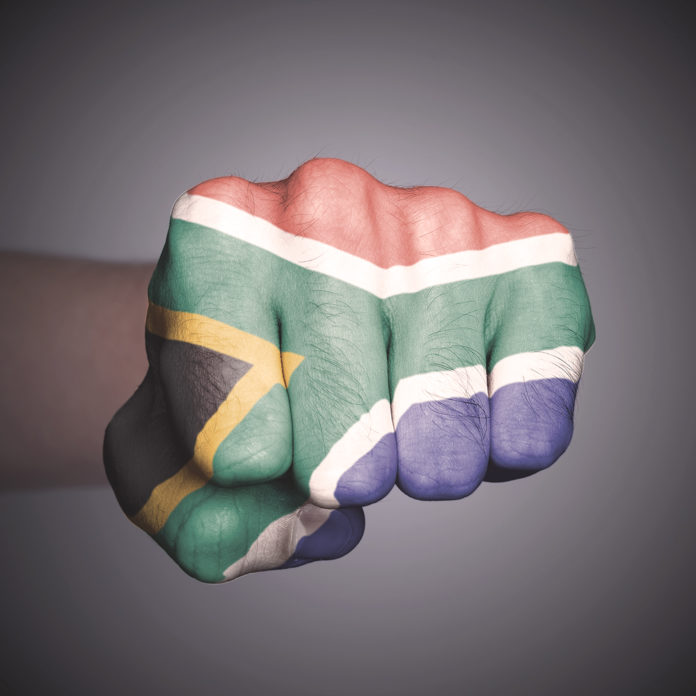
The back cover of Justice Malala’s book starts with these words about my home country, South Africa:
“I am angry. I am furious. Because I never thought it would happen to us. Not us, the rainbow nation that defied doomsayers and suckled and nurtured a fragile democracy into life for its children. I never thought it would happen to us, this relentless decline, the flirtation with a leap over the cliff.”
When I walked into a local bookshop the other day, I hadn’t even intended to buy this book. I was heading for Eusebius Mckaiser’s Run, Racist, Run when I realised my friend Megan was already reading it and she recommended this one.
All part of my education as a white man trying to relearn the history of my country, both past and present. And one of the biggest assists in that has been to read authors who do not look and sound like me.
To be honest, I had not even heard of this book and yet in a few short days I find myself within breathing distance of the end of it. And what a read it has been so far.
BOTH THE PRESIDENT AND THE PEOPLE
In We have now begun our decent, renowned political journalist slash commentator, Justice Malala shares some honest and very frank observations about where he sees the country at the moment. But fortunately, as the tagline of the book – How to stop South Africa losing its way” – suggests, he also holds out some ideas and speculations about how we might address the rot.
I say “we” because although Malala takes a very strong stance against president Jacob Gedleyihlekisa Zuma (he often chooses to quote his whole name for added effect) at times, he firmly places the future of South Africa at the feet of its people:
“It is about those of us who have forgotten that freedom is never fully achieved, but is defended and renewed every single day, in every square inch of space we occupy in the world.” (Chapter 2: How did we get here?).
AN INSIDER’S PERSPECTIVE
What I really find refreshing about “We have now begun our decent” is that Justice Malala writes as someone whose background has been in the ruling party, the ANC. He is not writing as a member of another party, throwing stones to try and discredit his opposition, but rather as one who feels personal pain at the way in which his party and the leaders thereof have overseen a slide from their historic mantle as freedom fighters into the mess it is in today in many ways.
The book is divided into two sections, labelled “The Way We Are Now“ and “The Road Ahead“ and so dealing with topics such as the concept of the “Rainbow Nation”, former president Thabo Mbeki’s overthrow, the tragic events at Marikana and the treatment of the media (again, with an insider’s perspective) he glances backwards with an eye on the shaping of the future.
“Has BEE succeeded? The legacy is mixed, if one follows the numbers. The Johannesburg Stock Exchange (JSE) has only 3.9 per cent of its value owned by black enterprises, more than 15 years after the policy was introduced. Anecdotally, some black South Africans have become extremely wealthy. Patrice Motsepe, a doughty billionaire mining entrepreneur, is often listed among the top three wealthiest South Africans. The Economist magazine reported in 2010: “among the 295 companies listed on the Johannesburg Stock Exchange (JSE), blacks account for just 4 per cent of chief executive officers, 2 per cent of chief financial officers and 15 per cent of other senior posts. In non-executive ones, they do a bit better, accounting for just over a quarter of board chairmen and 36 per cent of directors, but still nowhere near their share of the workforce.” (Chapter 7: Marikana: Our collective nightmare).
A WARNING NOT TO BE TAKEN LIGHTLY
As I mentioned, I still have two chapters to go and so I have not seen the full scope of Malala’s vision going forwards, but I have seen enough to know this: He shares the same kind of urgency I have in terms of the comfortable and the wealthy (read largely white people) of South Africa needing to come to the table very quickly so as to avert the inevitable if things remain as they are:
“What happens when the 8 million unemployed young people in our country reach these levels of desperation and disillusionment? What happens when they stop believing that tomorrow will be better than today? It might make many of us quiver with fear, but here is the cold, hard truth: they will opt out of the current social, economic and political arrangements and they will choose anarchy.” (Chapter 7: Marikana: Our collective nightmare).
One of the biggest things that white people in South Africa can bring to the table at the moment is listening. And reading books like We have now begun our decent and listening to voices like Justice Malala is one way to do that well. But because he writes as an insider from both the ANC and media perspective, his voice and this story has a lot to offer all South Africans.
What are other books you’ve been reading that you would recommend to people trying to navigate the political climate in your country? Please leave them in the comments below.
